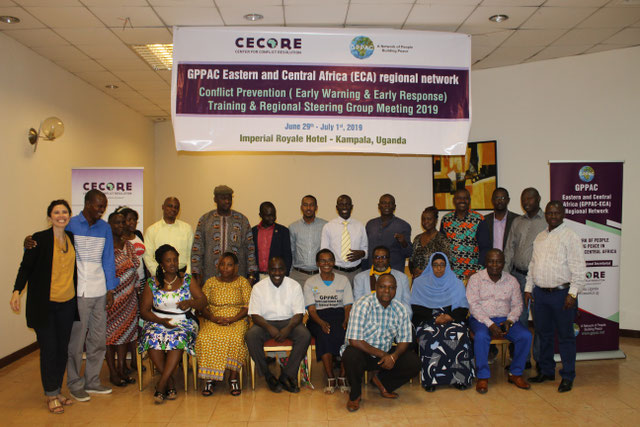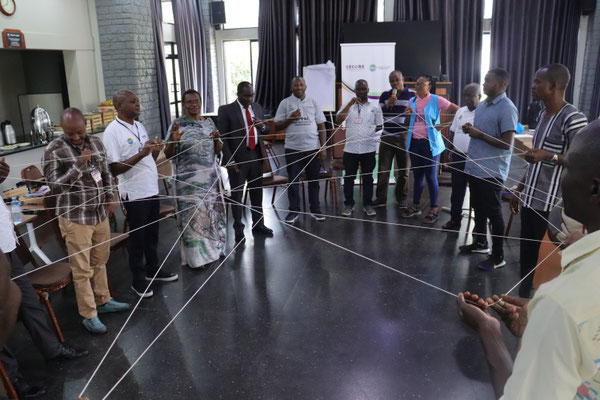Eastern & Central Africa
GPPAC
Strengthening local peacebuilders and connecting grassroots peace initiatives to national, regional and global policy.
The Global Partnership for the Prevention of Armed Conflict (GPPAC) is a global network of civil society actors working to shift responses to violence from reactive responses toward prevention and locally-owned peacebuilding. GPPAC-Eastern & Central Africa (ECA) connects actors across Eastern and Central Africa from grassroots community groups to regional policy forums and supports local ownership of peace strategies.
GPPAC - Eastern & Central Africa Regional Network


We Promote a Culture of Peace
CECORE’s Role in GPPAC
As Regional Secretariat (since 2017), CECORE coordinates network activities, facilitates knowledge exchange, leads regional advocacy and hosts multi-stakeholder meetings such as the Regional Steering Group (RSG).
Recent priorities include localisation of peacebuilding (SDG16+), climate-security, youth and women’s meaningful participation, and the multi-year Connection for Peace programme (2024–2031) funded by the Dutch Ministry of Foreign Affairs.
Key programmes & priorities
-
Connection for Peace (2024–2031) — Build/sustain Local Infrastructures for Peace; connect local realities to policy; focus on youth, women and communities affected by armed violence.
-
Peacebuilding Architecture Review (PBAR) — Regional consultations to strengthen the UN and partner architecture for sustaining peace.
-
Baseline studies & research — Country-level surveys to inform program design and localization.
-
Regional convening & advocacy — RSG meetings, policy dialogues and capacity building for national focal points.
-
Climate & conflict pilot — Local climate-security risk assessments and guidance (Kaabong pilot).
Regional Steering Group (RSG) Meeting: 12–14 November 2024, Kampala, Uganda
The first in-person RSG meeting since 2018, convening representatives from 16 GPPAC-ECA countries. The meeting included an inception for the Connection for Peace programme, shared country experiences, and set regional priorities for localised peacebuilding.
Member countries
Eastern Africa: Uganda, Kenya, Tanzania, Rwanda, Burundi, Sudan, South Sudan, Somalia, Somaliland, Eritrea.
Central Africa: Democratic Republic of Congo (DRC), Congo Brazzaville, Central African Republic (CAR), Cameroon, Gabon.
Now, it’s your turn.
You’ve seen the impact. You’ve heard the stories. Now, it’s your turn to take action. Whether it’s giving your time, sharing your voice, or making a donation, you have the power to create real change.
FAQ’s
GPPAC ECA is the regional network of the Global Partnership for the Prevention of Armed Conflict. It connects civil society actors across Eastern and Central Africa to strengthen conflict prevention and local peacebuilding. CECORE hosts the regional secretariat.
CECORE coordinates the network, supports national focal points, convenes regional meetings (including the RSG), manages regional programmes and disseminates research and guidance to strengthen local peace infrastructures.
The network covers countries across Eastern and Central Africa including (but not limited to) Uganda, Kenya, Tanzania, Rwanda, Burundi, DRC, South Sudan, Sudan, Somalia, CAR, Cameroon and Gabon. See the focal points list for full coverage.
Yes. For partnership or proposal enquiries, email the secretariat with a short concept note and contact details. Priority is given to initiatives that build local capacities and support youth/women’s engagement and localisation.